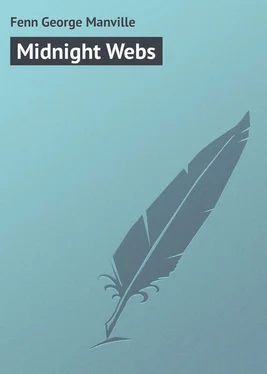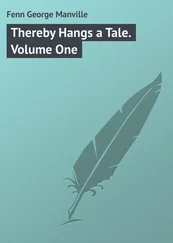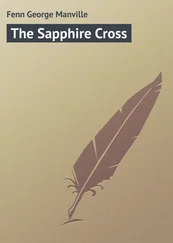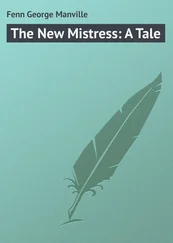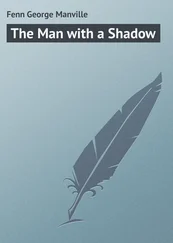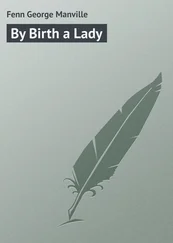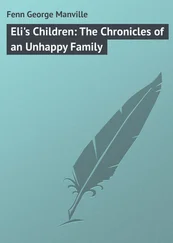George Fenn - Midnight Webs
Здесь есть возможность читать онлайн «George Fenn - Midnight Webs» — ознакомительный отрывок электронной книги совершенно бесплатно, а после прочтения отрывка купить полную версию. В некоторых случаях можно слушать аудио, скачать через торрент в формате fb2 и присутствует краткое содержание. Жанр: foreign_prose, на английском языке. Описание произведения, (предисловие) а так же отзывы посетителей доступны на портале библиотеки ЛибКат.
- Название:Midnight Webs
- Автор:
- Жанр:
- Год:неизвестен
- ISBN:нет данных
- Рейтинг книги:5 / 5. Голосов: 1
-
Избранное:Добавить в избранное
- Отзывы:
-
Ваша оценка:
- 100
- 1
- 2
- 3
- 4
- 5
Midnight Webs: краткое содержание, описание и аннотация
Предлагаем к чтению аннотацию, описание, краткое содержание или предисловие (зависит от того, что написал сам автор книги «Midnight Webs»). Если вы не нашли необходимую информацию о книге — напишите в комментариях, мы постараемся отыскать её.
Midnight Webs — читать онлайн ознакомительный отрывок
Ниже представлен текст книги, разбитый по страницам. Система сохранения места последней прочитанной страницы, позволяет с удобством читать онлайн бесплатно книгу «Midnight Webs», без необходимости каждый раз заново искать на чём Вы остановились. Поставьте закладку, и сможете в любой момент перейти на страницу, на которой закончили чтение.
Интервал:
Закладка:
Tramp, tramp, tramp, day after day, and nearly always over wide, dreary, dusty plains. Now we’d pass a few muddy paddy-fields, or come upon a river, but not often; and I many a time used to laugh grimly to myself, as I thought what a very different place hot, dusty, dreary India was, to the glorious country I used to picture, all beautiful trees and flowers, and birds with dazzling plumage. There are bright places there, no doubt, but I never came across one, and my recollections of India are none of the most cheery.
But at last came the day when we were crossing a great widespread plain, in the middle of which seemed to be a few houses, with something bright here and there shining in the sun; and as we marched on, the cluster of houses appeared to grow and grow, till we halted at last in a market-square of a good-sized town; and that night we were once more in barracks. But, for my part, I was more gritty than ever; for now we did not see the colonel’s lady or her sister, though I may as well own that there was some one with them I wanted to see more than either.
They were all, of course, at the colonel’s quarters, a fine old palace of a place, with a courtyard, and a tank in the centre, and trees, and a flat roof, by the side of the great square; while on one side was another great rambling place, separated by a narrowish sort of alley, used for stores and hospital purposes; and on the other side, still going along by the side of the great market-square, was another building, the very fellow to the colonel’s quarters, but separated by a narrow footway, some ten feet wide, and this place was occupied by the officers.
Our barracks took up another side of the square; and on the others were mosques and flat-roofed buildings, and a sort of bazaar; while all round stretched away, in narrow streets, were the houses of what we men used to call the niggers. Though, speaking for myself, I used to find them, when well treated, a nice, clean, gentle sort of people. I used to look upon them as a big sort of children, in their white muslin and calico, and their simple ways of playing-like at living; and even now I haven’t altered my opinion of them in general, for the great burst of frenzied passion that ran through so many of them was just like a child’s uncontrolled rage.
Things were not long in settling down to the regular life: there was a little drill of a morning, and then, the rest of the day, the heat to fight with, which seemed to take all the moisture out of our bodies, and make us long for night.
I did not get put on as sentry once at the colonel’s quarters, but I heard a little now and then from Mrs Bantem, who used to wash some of Mrs Maine’s fine things, the black women doing everything else; and she’d often have a good grumble about “her fine ladyship,” as she called her, and she’d pity her children. She used to pick up a good deal of information, though; and, taking a deal of interest as I did in Miss Ross, I got to know that it seemed to be quite a settled thing between her and Captain Dyer; and Bantem, who got took on now as Lieutenant Leigh’s servant, used to tell his wife about how black those two seemed one towards the other.
And so the time went on in a quiet sleepy way, the men getting lazier every day. There was nothing to stir us, only now and then we’d have a good laugh at Measles, who’d get one of his nasty fits on, and swear at all the officers round, saying he was as good as any of them, and that if he had his rights he would have been made an officer before them. Harry Lant, too, used to do his bit to make time pass away a little less dull, singing, telling stories, or getting up to some of his pranks with old Nabob, the elephant, making Chunder, the mahout, more mad than ever; for, no matter what he did or said, only let Harry make a sort of queer noise of his, and, just like a great flesh-mountain, that elephant would come. It didn’t matter who was in the way: regiment at drill, officer, rajah, anybody, old Nabob would come straight away to Harry, holding out his trunk for fruit, or putting it in Harry’s breast, where he’d find some bread or biscuit; and then the great brute would smooth him all over with his trunk, in a way that used to make Mrs Bantem say, that perhaps, after all, the natives weren’t such fools as they looked, and that what they said about dead people going into animal’s bodies might be true; for, if that great overgrown beast hadn’t a soul of its own, and couldn’t think, she didn’t know nothing, so now then!
Story 1-Chapter VI
But it was always the same; and though time was when I could have laughed as merrily as did that little Jenny Wren of the colonel’s at Harry’s antics, I couldn’t laugh now, because it always seemed as if they were made an excuse to get Miss Ross and her maid out with the children.
A party of jugglers, or dancing-girls, or a man or two with pipes and snakes, were all very well; but I’ve known clever parties come round, and those I’ve named would hardly come out to look; and my heart, I suppose it was, if it wasn’t my mind, got very sore about that time, and I used to get looking as evil at Harry Lant as Lieutenant Leigh did at the captain.
But it was a dreary time that, after all; one from which we were awakened in a sudden way, that startled us to a man.
First of all there came a sort of shadowy rumour that something was wrong with the men of a native regiment, something to do with their caste; and before we had well realised that it was likely to be anything serious, sharp and swift came one bit of news after another, that the British officers in one native regiment had been shot down – here, there, in all directions; and then we understood that what we had taken for the flash of a solitary fire, was the firing of a big train, and that there was a great mutiny in the land. And not, mind, the mutiny or riot of a mob of roughs, but of men drilled and disciplined by British officers, with leaders of their own caste, all well armed and provided with ammunition; and the talk round our mess when we heard all this was, How will it end?
I don’t think there were many who did not realise the fact that something awful was coming to pass. Measles grinned, he did, and said that there was going to be an end of British tyranny in India, and that the natives were only going to seize their own again; but the next minute, although it was quite clean, he takes his piece out of the rack, cleans it thoroughly all over again, fixes the bayonet, feels the point, and then stands at the “present!”
“I think we can let ’em know what’s what, though, my lads, if they come here,” he says, with a grim smile; when Mrs Bantem, whose breath seemed quite taken away before by the way he talked, jumped up quite happy-like, laid her great hand upon his left side, and then, turning to us, she says:
“It’s beating strong.”
“What is?” says Bantem, looking puzzled.
“Measles’ heart,” says Mrs Bantem; “and I always knew it was in the right place.”
The next minute she gave Measles a slap on the back as echoed through the place, sending him staggering forward; but he only laughed and said:
“Praise the saints, I ain’t Bantem.”
There was a fine deal of excitement, though, now. The colonel seemed to wake up, and with him every officer, for we expected not only news but orders every moment. Discipline, if I may say so, was buckled up tight with the tongue in the last hole; provisions and water were got in; sentries doubled, and a strange feeling of distrust and fear came upon all, for we soon saw that the people of the place hung away from us, and though, from such an inoffensive-looking lot as we had about us, there didn’t seem much to fear, yet there was no knowing what treachery we might have to encounter, and as he had to think and act for others beside himself, Colonel Maine – God bless him – took every possible precaution against danger, then hidden, but which was likely to spring into sight at any moment.
Читать дальшеИнтервал:
Закладка:
Похожие книги на «Midnight Webs»
Представляем Вашему вниманию похожие книги на «Midnight Webs» списком для выбора. Мы отобрали схожую по названию и смыслу литературу в надежде предоставить читателям больше вариантов отыскать новые, интересные, ещё непрочитанные произведения.
Обсуждение, отзывы о книге «Midnight Webs» и просто собственные мнения читателей. Оставьте ваши комментарии, напишите, что Вы думаете о произведении, его смысле или главных героях. Укажите что конкретно понравилось, а что нет, и почему Вы так считаете.
